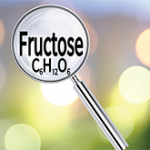Sorting through the pathogenesis of type 2 diabetes, we have discovered that being overweight sets off a cascade of immune responses that accelerate the creation of a full-blown metabolic crisis.
It is not for lack of trying that a cure for either form of diabetes is lacking. Yes, insulin can replace what is missing in type 1 diabetes, and some of the drugs used in type 2 diabetes may help dampen aberrant immune responses. But curing diabetes is not likely to happen in the foreseeable future. Sound familiar?
It has been longer than 100 years since famed German bacteriologist Paul Ehrlich, MD, coined the term, horror autotoxicus, to describe the damaging effects of the autoimmune response when self attacks self.15 Whether it be diabetes, rheumatoid arthritis, lupus or multiple sclerosis, how to reverse the ravages of these self-inflicted wounds and restore our tissues to homeostasis continues to elude us.
 Simon M. Helfgott, MD, is associate professor of medicine in the Division of Rheumatology, Immunology and Allergy at Harvard Medical School in Boston.
Simon M. Helfgott, MD, is associate professor of medicine in the Division of Rheumatology, Immunology and Allergy at Harvard Medical School in Boston.
References
- Wright JR Jr. Almost famous: E. Clark Noble, the common thread in the discovery of insulin and vinblastine. CMAJ. 2002, Dec 10;167(12):1391–1396.
- Rendell M. Insulin: Moments in history. Drug Dev Res. 2008 May;69(3):95–100.
- Bliss M. The Discovery of Insulin. Second ed. Chicago: The University of Chicago Press; 2007.
- Banting FG, Best CH, Collip JB, et al. Pancreatic extracts in the treatment of diabetes mellitus. Can Med Assoc J. 1922 Mar;12(3):141–146.
- Williamson RT. On the treatment of glycosuria and diabetes mellitus with sodium salicylate. Br Med J. 1901 Mar 30;1(2100):760–762.
- Atkinson MA, Eisenbarth GS, Michels AW. Type I diabetes. Lancet. 2014 Jan 4;383(9911):69–82.
- Orban T, Bundy B, Becker DJ, et al. Co-stimulation modulation with abatacept in patients with recent-onset type 1 diabetes: A randomised, double-blind, placebo-controlled trial. Lancet. 2011 Jul 30;378(9789):412–419.
- Shapiro AM, Ricordi C, Hering BJ, et al. International trial of the Edmonton protocol for islet transplantation. N Engl J Med. 2006 Sep 28;355(13):1318–1330.
- Knip M, Virtanen SM, Seppä K, et al. Dietary intervention in infancy and later signs of beta-cell autoimmunity. N Engl J Med. 2010 Nov 11;363(20):1900–1908.
- Verge CF, Gianani R, Kawasaki E, et al. Prediction of type i diabetes in first-degree relatives using a combination of insulin, GAD, and ICA512bdc/IA-2 autoantibodies. Diabetes. 1996 Jul;45(7):926–933.
- Osborn, O, Olefsky JM. The cellular and signaling networks linking the immune system and metabolism in disease. Nat Med. 2012 Mar 6;18(3):363–374.
- Solomon DH, Massarotti E, Garg R, et al. Association between disease-modifying antirheumatic drugs and diabetes risk in patients with rheumatoid arthritis and psoriasis. JAMA. 2011 Jun 22;305(24)2525–2531.
- Negrotto L, Farez MF, Correale J. Immunologic effects of metformin and pioglitazone treatment on metabolic syndrome and multiple sclerosis. JAMA Neurol. 2016 May 1;73(5):520–528.
- Versini M, Jeandel PY, Rosenthal E, et al. Obesity in autoimmune diseases: Not a passive bystander. Autoimmun Rev. 2014 Sep;13(9):981–1000.
- Silverstein AM. Autoimmunity versus horror autotoxicus: The struggle for recognition. Nat Immunol. 2001 Apr;2(4):279–281.
